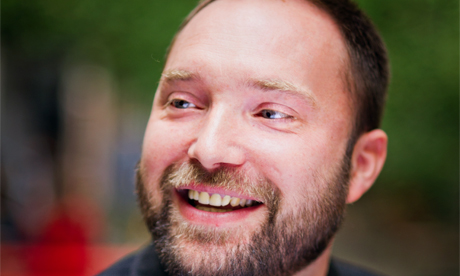
British publisher NaturalMotion Games has raised $11m (£7m) in Series B funding from Silicon Valley venture capital firm Benchmark Capital, as it expands its San Francisco office and looks to scale up to compete with the biggest guns in the mobile social gaming industry.
Benchmark's general partner Mitch Lasky will join NaturalMotion's board as part of the funding. Lasky made his name in the mobile industry taking US publisher Jamdat public in 2004, before selling it to Electronic Arts in 2006 for $680m. His involvement is a sign of NaturalMotion's ambitions.
"Speed of execution is really important right now," says chief executive Torsten Reil in an interview with The Guardian. "To some extent, there is a land-grab going on, so we're trying to get to scale very quickly. We are looking to become one of the leading companies in the mobile games industry, if not the leading one."
NaturalMotion's roots are in Oxford, and animation technology for console games – its engine was used by Rockstar Games for Grand Theft Auto IV, for example. After success with iPhone game Backbreaker Football, the company split its technology and publishing divisions in November 2010, with the latter focusing on iOS.
The publisher had hits with paid games Jenga, Icebreaker Hockey, Backbreaker 2: Vengeance and NFL Rivals, before pivoting towards free-to-play social games in September 2011 with My Horse. It's that free-to-play model that Benchmark is betting its $11m on.
"We're trying to scale up our investment in development capacity more than anything else: the number of games we're doing and the number of internal teams we have," says Reil.
"We've found this really powerful combination of really high-end visual quality for games – console-quality, we think – with mobile play patterns where people play in short bursts several times a day."
Reil also thinks that NaturalMotion is moving beyond the first wave of mobile social games, which took their cues from the mainly-2D Flash-based titles that built the social games industry on Facebook.
My Horse has been downloaded more than 10m times on iOS. Reil says the game surprised some industry observers, who hadn't expected NaturalMotion to make a casual, female-slanted game.
"Its been a huge learning experience for us, particularly when it comes to monetisation," says Reil. "We worked very hard to make sure people didn't feel nickel-and-dimed. We didn't want to put a hard limit in where if you don't pay money, you don't progress any more."
Reil says NaturalMotion has genuine hopes of going toe-to-toe with bigger fish like Zynga, EA, Gree and DeNA in the mobile social gaming market, although he accepts that there is inevitable consolidation ahead – those companies have been snapping up talented independent studios left, right and centre.
"It's quite a lot more diversified as an ecosystem than Facebook," he says, of the App Store. "On Facebook, through virality one company – Zynga – got big very quickly, and then cemented its dominance. The virality isn't quite there in the same way on the App Store. Most downloads come organically – through people recommending the game to friends – or through visibility on the store through charts and Apple features."
NaturalMotion is certainly in Apple's good books: its upcoming game CSR Racing was demonstrated live on-stage during the company's WWDC keynote earlier in June.
Reil says the publisher will be revealing more details soon – for now, we know that it's a free-to-play racing game, which will be playable cross-platform between iOS devices and Mac computers. It's currently being beta-tested.
Is NaturalMotion focusing on Apple devices alone? "The user numbers are amazing, the install base is large, and it's a very high-quality platform so users are looking to spend money," he says.
"There are other platforms, of course. We take Android seriously, definitely, but it's not at the same level on our radar as iOS is right now. And then other platforms like Windows Phone that are even further away."
What about NaturalMotion's roots, though: the console market? If the free-to-play business model becomes more popular (well, possible, in truth) on console, would NaturalMotion look to take its mobile games back to those platforms?
Reil would rather focus on smartphones and tablets, and he thinks consumer shifts will back up this decision.
"There has been a fundamental shift in terms of people's mindshare. If you are an eight, ten or 12 year-old kid, you're probably more excited about the next iPhone or iPad than you are about the next-generation console," he says.
"That shift isn't necessarily clear to anyone over 25 or 30, but from what I can see, it's fundamental. There is still the idea that console gaming is 'the real gaming'. I think that may flip, and mobile gaming will be seen as the real gaming."

